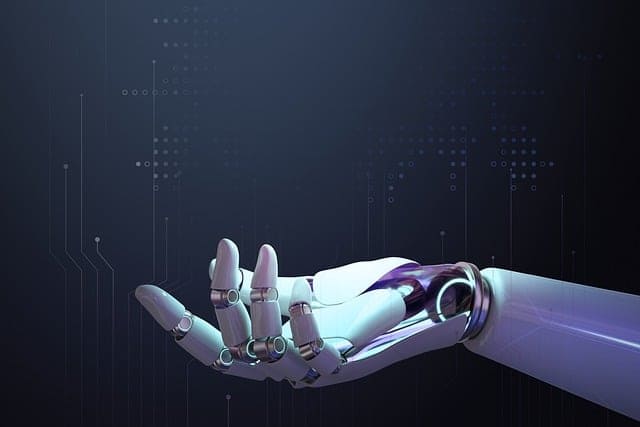How Generative AI Is Revolutionizing the Tech Industry
Generative artificial intelligence represents the most significant technological paradigm shift since cloud computing, with companies across the technology landscape racing to integrate these capabilities into their products and services at unprecedented speed and scale, transforming entire industries overnight.
The Fundamental Mechanics Behind Generative AI
Generative AI systems operate on sophisticated neural network architectures—primarily transformer models—that process vast amounts of training data to identify patterns, relationships, and structures that enable them to generate entirely new content that mimics human-created work while adding novel elements.
Unlike traditional AI that primarily classifies or predicts based on existing data patterns, generative models create entirely new outputs, whether that’s synthesizing realistic images from text descriptions, writing coherent long-form content, or generating functional computer code from natural language specifications.
The recent breakthroughs stem from advances in computational power, algorithm refinement, and the availability of massive datasets, creating a perfect storm that has catapulted generative AI from research laboratories into mainstream applications with remarkable capabilities that continue to improve at an exponential rate.
Transformative Impact on Software Development
Software engineering practices are undergoing radical transformation as AI coding assistants like GitHub Copilot, Amazon CodeWhisperer, and similar tools now generate functional code snippets, complete complex functions, and even debug existing programs with minimal human guidance.
These AI pair programmers have demonstrated productivity increases of 30-50% in multiple studies, enabling developers to focus on higher-level architecture and problem-solving while the AI handles repetitive coding tasks and boilerplate implementations that previously consumed significant development time.
The next frontier involves generative AI systems that can conceptualize and build entire applications from simple natural language descriptions, potentially democratizing software creation for non-technical users while simultaneously elevating professional developers into more strategic roles focused on system design and business logic.
Content Creation and Creative Industries Revolution
The creative sectors are experiencing unprecedented disruption as generative AI tools produce professional-quality images, videos, music, and written content at scale, challenging traditional production workflows and creating entirely new possibilities for personalized media experiences.
Marketing departments now leverage AI to generate and test dozens of content variations simultaneously, optimizing messaging based on performance data while reducing production costs and accelerating campaign deployment timelines from weeks to mere hours.
The boundary between human and AI-generated content continues to blur as these systems produce increasingly sophisticated outputs that can match or even exceed human-created work in certain contexts, raising profound questions about creativity, authorship, and the evolving role of human artists in collaboration with intelligent tools.
Enterprise Adoption and Implementation Challenges
Organizations implementing generative AI face significant technical hurdles including data privacy concerns, prompt engineering complexity, and the need for robust governance frameworks to ensure outputs remain accurate, appropriate, and aligned with business objectives.
The integration of generative AI into existing technology stacks requires specialized expertise that remains in short supply, creating a competitive talent market where companies must balance building internal capabilities against partnering with specialized AI service providers and consultancies.
Successful enterprise adoption typically follows a pattern of starting with narrowly-defined use cases where value can be quickly demonstrated, then gradually expanding implementation while simultaneously developing comprehensive policies addressing intellectual property rights, bias mitigation, and ethical usage guidelines.
Economic Implications and Workforce Transformation
The economic impact of generative AI could reach $4.4 trillion annually according to McKinsey research, with productivity gains across knowledge work sectors potentially reducing costs while enabling workers to accomplish more complex tasks and focus on uniquely human contributions.
Industries experiencing the most significant disruption include customer service (through advanced conversational AI), marketing (content generation and personalization), legal services (contract analysis and document creation), and healthcare (medical documentation and preliminary diagnostics).
The workforce transformation underway requires proactive reskilling initiatives as routine cognitive tasks become increasingly automated, with the most valuable future skills centering on effective human-AI collaboration, prompt engineering expertise, and the critical evaluation of AI-generated outputs.
 Source: Pixabay
Source: PixabayConclusion
Generative AI represents a fundamental technological inflection point that is redefining how technology products are built, deployed, and experienced across virtually every sector of the digital economy.
Companies that strategically embrace these capabilities while thoughtfully addressing the associated challenges will likely establish significant competitive advantages, while those that delay adoption risk finding themselves at a substantial productivity and innovation disadvantage.
The most successful implementations will be those that view generative AI not as a replacement for human creativity and intelligence, but as a powerful amplifier that enables people to work at higher levels of abstraction and focus on the uniquely human aspects of problem-solving and innovation.
Frequently Asked Questions
What makes generative AI different from previous AI technologies?
Generative AI creates entirely new content rather than just analyzing existing data, using sophisticated neural networks to produce human-quality text, images, code, and other media from simple prompts.Which industries are seeing the fastest adoption of generative AI?
Software development, marketing, customer service, and content creation industries are experiencing the most rapid transformation, with tools that automate routine tasks while enhancing human capabilities.What are the main challenges in implementing generative AI systems?
Organizations face challenges including data privacy concerns, output accuracy, intellectual property questions, integration with existing systems, and developing appropriate governance frameworks.How is generative AI affecting employment in the tech sector?
Rather than wholesale job elimination, we’re seeing role evolution where routine tasks are automated while demand increases for AI prompt engineering, output evaluation, and strategic implementation expertise.What skills will be most valuable as generative AI becomes more prevalent?
Critical thinking, effective prompt engineering, ethical AI implementation, human-AI collaboration strategies, and the ability to validate and refine AI-generated outputs will become increasingly valuable.


